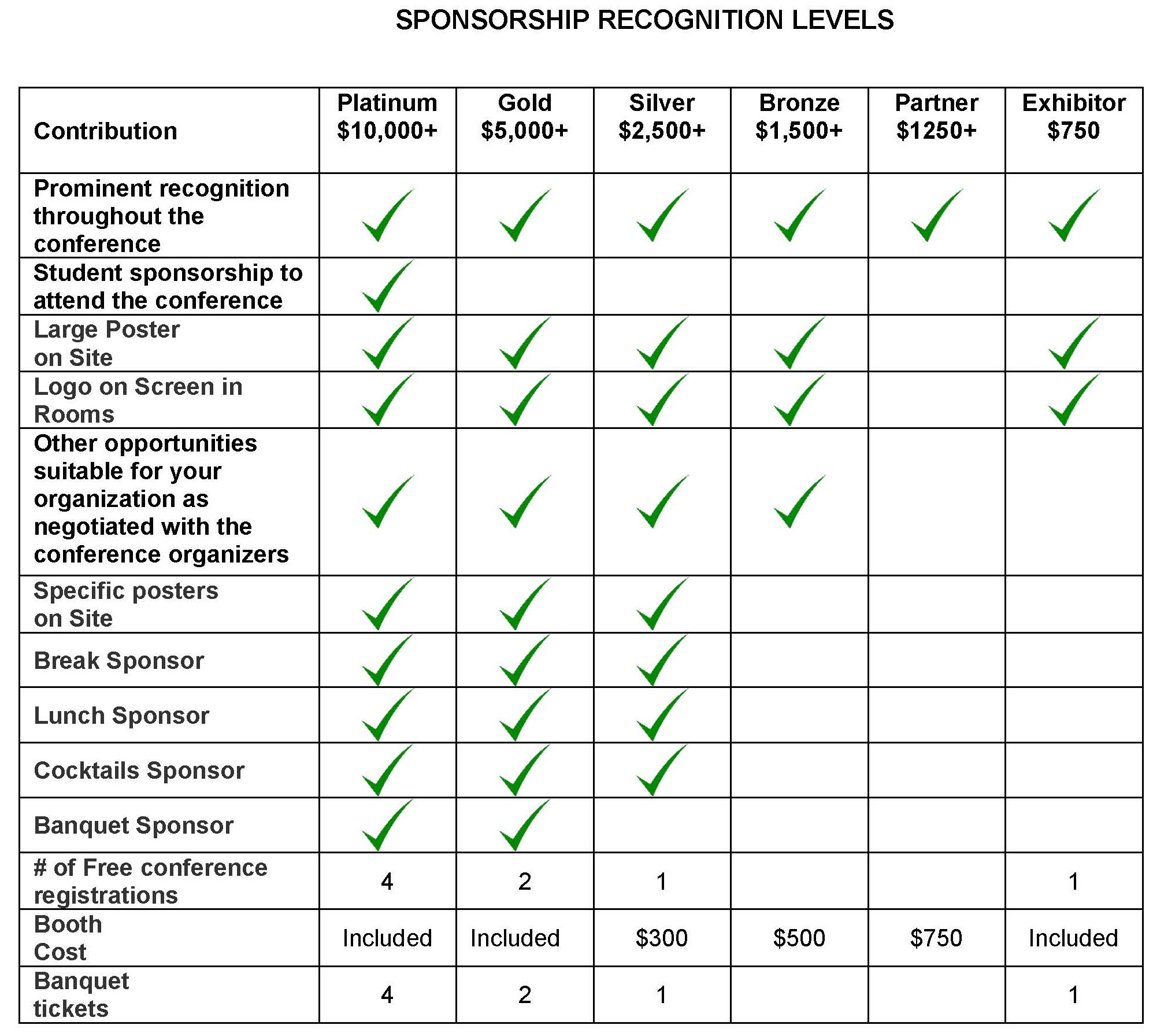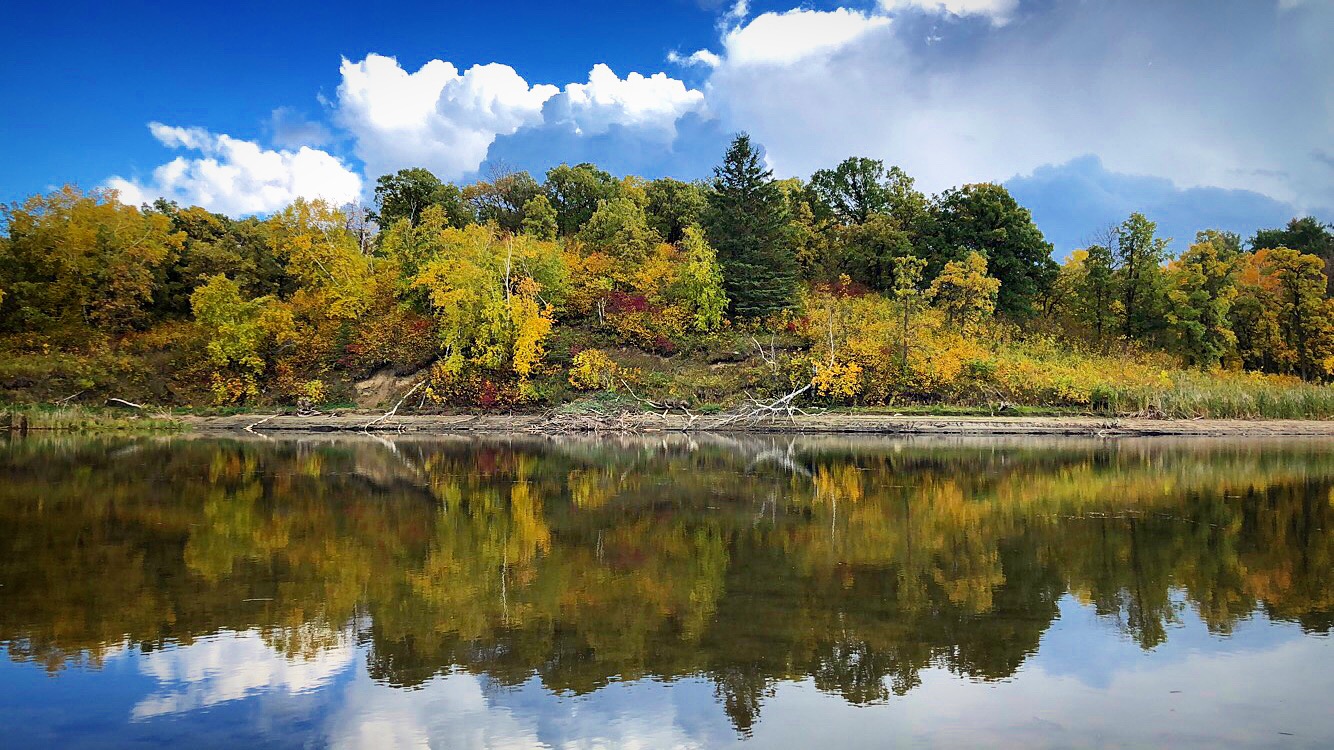2019 Branch Conference

Change occurs constantly all around us, including changes to social, political, technological, and bio-physical systems. Water is often at the centre of these changes, leading to wide-ranging discussions of concerns with drought, flooding, water quality, availability, and infrastructure sustainability. Navigating through these concerns, challenges, and changes toward solutions requires a multidisciplinary team approach, using scientific research data.
The CWRA Alberta Branch hosts annual conferences to bring together professionals working on aspects of water-related topics to facilitate collaboration and information exchanges between scientists, researchers, practitioners, managers, stakeholders, and decision-makers.
|
Member Rate (Already a member) |
Non-Member Rate (This includes a 1 year CWRA Membership) |
|
|
Full Registration |
$400 |
$520 |
|
Young Professionals |
$400 |
$480 |
|
Student |
$175 |
$235 |
|
Single day |
$250 |
$370 |
|
Single day Student |
$100 |
$160 |
*Memberships: Regular – $120, SYP – $80, Retired and Student – $60
2929 – 50 Avenue, Red Deer, Alberta
403.343.6666
A block of rooms has been set aside for April 14 and April 15.
$119.00 + tax/night.
Rooms will be released after March 14, 2019 so book early!
John Van Ham – Executive Director of Environmental Innovation, Alberta Innovates
April 15, 2019
Topic: Igniting talent development in water management
Abstract
The United Nations estimates that three out of four jobs that make up the global workforce are either heavily or moderately dependent on water. Energy, agriculture, food and beverage, forestry, pulp and paper, manufacturing, health, development, construction, insurance and government are important sectors in which water and jobs are linked at various levels, whether we look at them from an economic, environmental or social perspective. Today, more than ever, individuals, communities and businesses are facing new and different water challenges that have resulted from economic, environmental and technological change. With water being such a vital part of life and a valued resource, individuals, communities and businesses need to work collectively to address both current and emerging challenges. As a leader in applied education, the Southern Alberta Institute of Technology (SAIT) gathers industry leaders to work together on the identification of opportunities in ensuring sustainable water management, which includes not only exploring new water usage technologies and less water-intensive uses, but also talent development.
SAIT’s new water portfolios aim to enable leaders drew out strategic water challenges that some of Canada’s key industries are facing, and identified ways in which students can support industries today and in the near future. This talk will illustrate the value proposition of applied learning in water resources management, including how can students help summarize the challenges, differences, and similarities across sectors while mapping out the opportunities for collectively advancing water management.
April 16, 2019
Topic: Alberta’s Water Innovation Program – Research and Innovation to Support Contemporary and Future Water Management Challenges
Abstract
The goals for Alberta’s Water for Life Strategy may seem simple: providing Albertans with safe secure drinking water, protecting healthy aquatic ecosystems, and ensuring reliable quality water supplies for a sustainable economy. Achieving these goals is no simple matter. How can Alberta sustainably manage finite water resources with significant population growth, a growing economy that demands water and the need to protect the health of the aquatic ecosystems? Demands for water are further challenged, as future water supplies will become increasingly uncertain and more variable due to climate change. Research and innovation are critical to this strategy and to provide a strong foundation of knowledge and technologies to enable well-informed management decision-making and improve water management practices. To effectively carry out this strategy, Alberta has invested over $55 M in research and innovation to support sustainable water resource management since 2007. The Water Innovation Program (WIP) managed by Alberta Innovates is a flagship program for the Government of Alberta in water innovation.
Decisions made about water will play a critical role in shaping Alberta’s future. Resolving the challenges related to water; its availability or scarcity, its quality, its impact on the health of Albertans, its use by the energy sector, agriculture and forestry, and its role in sustaining healthy environments will be compelling factors in almost all decisions in the province, as well as the rest of Canada. Alberta Innovates water-related research portfolio supports investments that advance knowledge and technology in 4 key themes: future water supply and watershed management; healthy aquatic ecosystems; water use conservation, efficiency, and productivity; water quality protection. This presentation will use WIP project outcomes to tell a story of building knowledge to support and inform these critical decisions.
April 16, 2019
Water reuse is the collection of water that comes from alternative sources, such as greywater, rainwater, and stormwater, and subsequent fit-for-purpose treatment for safe use. Infrastructure needs, environmental impacts, ethics, values, economics, and establishment of sustainable, healthy communities are all aspects of water reuse. In Alberta, interest in water reuse is increasing as Southern Alberta faces periods of drought as well as intense rain events, and remote communities face increasing costs to treat all water to a potable standard regardless of intended use. Evolving our water policies and management strategies to reuse water is seen as a likely component to ease stresses on water service provision. We want to explore water reuse with those already engaged in water resources management in Alberta.
Our session will start with a presentation from Dr. Nicholas Ashbolt, an expert in water reuse globally, who will provide an overview of water reuse, including why it has been implemented in other parts of the world, the variety of water reuse schemes that exist, and the necessary infrastructure and innovation needed for reuse in its many forms. He will bring the conversation into the Alberta context using examples and discussing the opportunities for future projects, as part of re-envisioning how to develop healthier communities. Throughout the presentation we will encourage questions and check in with participants to ensure the concepts are being understood.
After the presentation we will engage participants in a World Cafe to explore their thoughts and ideas about water reuse. One guiding question, how should we implement water reuse in Alberta?, will be discussed at each table and as participants rotate tables they will build on the conversations had previously at the table, as described by the table host. Ideas for potential water reuse projects will be explored and the underlying values and reasons why water reuse might be considered will be discussed. Participants will expand their understanding through conversational learning rooted in real world applications.
Our session will end with sharing and discussing outcomes from the World Cafe. Our hope is participants to leave with a foundational understanding of water reuse and the opportunities for it in their work, and with the resources to further their skills and understanding. The overall goal is to engage with participants and develop our combined understanding on what water reuse is and the opportunities for it in Alberta
Workshop team:
Dr. Nicholas Ashbolt is a professor and Alberta Innovates Translational Research Chair in Waterborne Diseases in the School of Public Health, University of Alberta. He has over 30 years’ experience in health-related water microbiology, mostly in the field of environmental pathogen detection, fate and transport. Nicholas has worked in joint Australian-Sweden and European programs developing methods to interpret pathogen data with the aid of quantitative microbial risk assessment and integrated results within an urban water sustainability framework. His research has contributed to the risk-based approach adopted in recent Australian and WHO recreational, drinking water and reuse guidelines, US EPA recreational criteria and current revisions to water guidelines in Canada and Alberta. Current research focuses on pathogens that grow within water systems and the amplification of antimicrobial resistance genes. He is also an adjunct professor at UNSW-Sydney, Swedish Institute for Infectious Diseases, Stockholm and in the School of Environmental Science and Engineering, Nankai University Tianjin, China, and has published 40 book chapters, 200 journal papers and over 140 conference proceedings since he became an academic in 1994.
Dr. Jane Springett is a professor within the Centre for Healthy Communities in the School of Public Health. She has a background in social science and urban geography and has a particular interest in transdisciplinary research, community engagement and participatory practice in different environmental contexts.
Jacqueline Noga is the Social Research Coordinator for a research project aiming to develop a national framework for water reuse in Canada. With a keen interest in using qualitative research to understand the challenges that exist in a changing water climate, Jacqueline employs her favourite skill: asking questions.
The call for Sponsors and Exhibitors is now ready for download. We have changed things up this year and you can now pay through our online registration system (see link below). If you would prefer to pay by cheque, please contact our Sponsorship Co-Chairs to make arrangements. If you have questions about sponsoring or exhibiting at the conference, please fill in the form below and we will reply as soon as possible.

The Alberta Branch of the Canadian Water Resources Association (CWRA) is issuing this call for abstracts and workshops for the 2019 conference in Red Deer focusing on challenges facing Alberta’s water resources in a changing world.
The 2019 conference is soliciting presentations on the following themes:
● Changes in flood cycles and hydrological patterns
● Evolving water policies and management strategies
● Sustainable and resilient water use
● Water quality, contamination, and consequences
● Infrastructure management and adaptability
● New and emerging tools and technologies (e.g. monitoring, modelling, and
other analytical tools)










